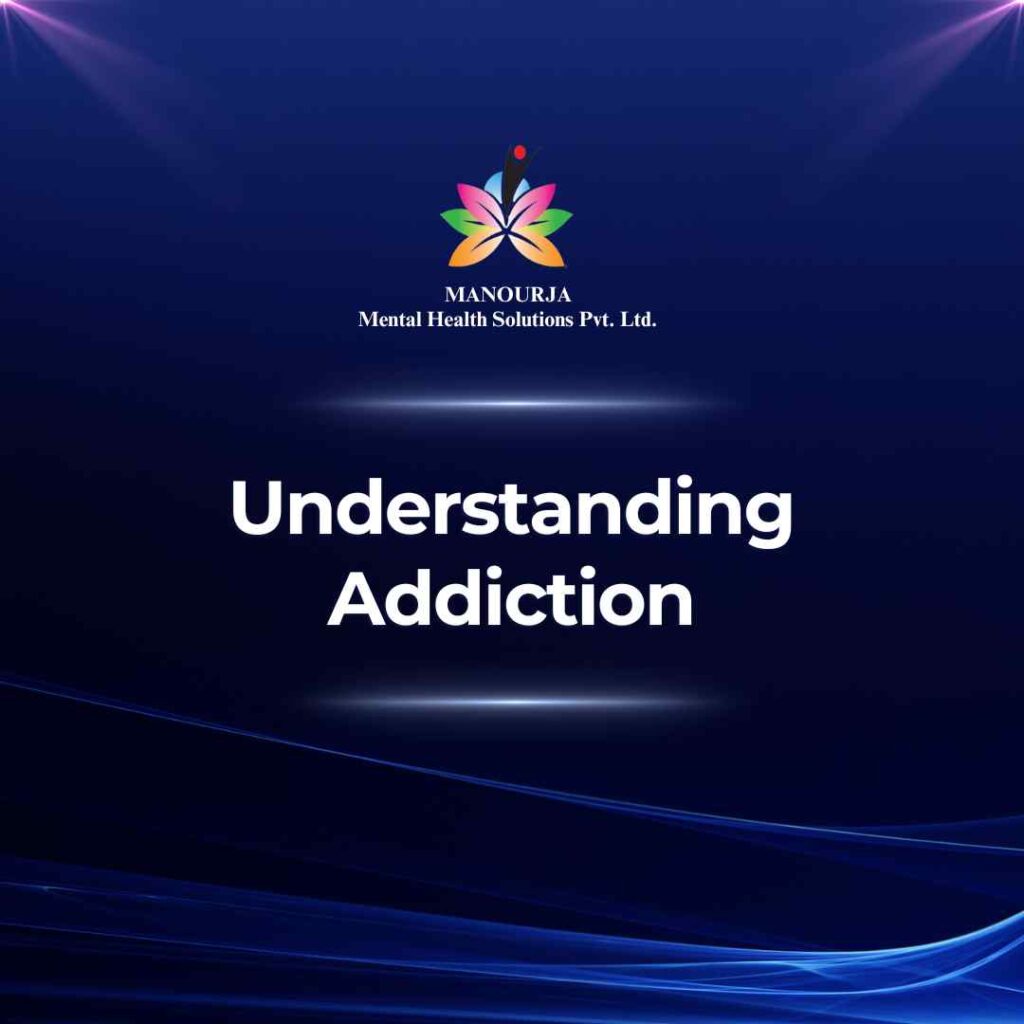Understanding Addiction

Addiction is defined as a chronic, relapsing disorder characterized by compulsive drug seeking, continued use despite harmful consequences, and long-lasting changes in the brain. It is recognized as a complex brain disorder and a mental health condition that affects both the brain and behavior. The hallmark of addiction is the inability to control or stop the behavior despite negative consequences on one’s physical health, mental well-being, relationships, or responsibilities.
The meaning of addiction often includes elements such as:
- Compulsion: The individual feels a strong urge or craving to engage in the addictive behavior or consume the substance, often leading to repeated actions despite efforts to resist.
- Loss of Control: The person finds it difficult or impossible to limit or stop the behavior, even when they want to.
- Negative Consequences: Addiction typically leads to adverse effects on various aspects of life, including physical health, mental health, relationships, work, and finances.
- Continued Use Despite Awareness of Harm: Despite being aware of the negative consequences, individuals with addiction continue to engage in the behavior or consume the substance.
- Tolerance and Withdrawal: Over time, the individual may develop tolerance, needing larger amounts of the substance or engaging in the behavior more frequently to achieve the same effects. Withdrawal symptoms may occur when the substance is unavailable or the behavior is restricted.
Difference between a general habit and Addiction
- Control: While both habits and addictions involve repetitive behaviors, individuals with habits can usually control or modify their behavior, when necessary, whereas those with addiction struggle to control or stop their behavior despite negative consequences.
- Impact on Life: Habits may not significantly interfere with daily life or cause severe negative consequences, whereas addiction often disrupts multiple aspects of life, including relationships, work, and health.
- Craving and Compulsion: Addiction typically involves intense cravings and compulsive behavior, whereas habits may not produce the same level of psychological dependence.
- Withdrawal: Addiction is often associated with withdrawal symptoms when the substance or behavior is discontinued, whereas habits typically do not produce such physiological reactions.
It’s important to note that not all habits escalate into addictions, and many people can engage in potentially addictive behaviors without developing an addiction. However, understanding the distinctions between habits and addiction can help identify when behavior may be becoming problematic and in need of intervention.
At MANOURJA, we believe in the transformative power of counseling. Our experienced therapists offer a safe and supportive space where you can explore your thoughts, emotions, and challenges. Through personalized counselling sessions, we’ll work together to develop coping strategies, build resilience, and achieve lasting positive change. Discover the path to a healthier, happier you with MANOURJA counselling services.
MANOURJA Rehabilitation Services
At MANOURJA, we’re dedicated to helping you in rebuild your life, after difficult times. Our rehabilitation services focus on understanding what you need to move forward, whether you’re recovering from addiction, trauma, or any psychological – social challenges. We create personalized plans, that are all about helping you, regain your strength and find hope again. With a caring team by your side, you’ll have the support to make real progress and take steps toward a brighter, healthier future
